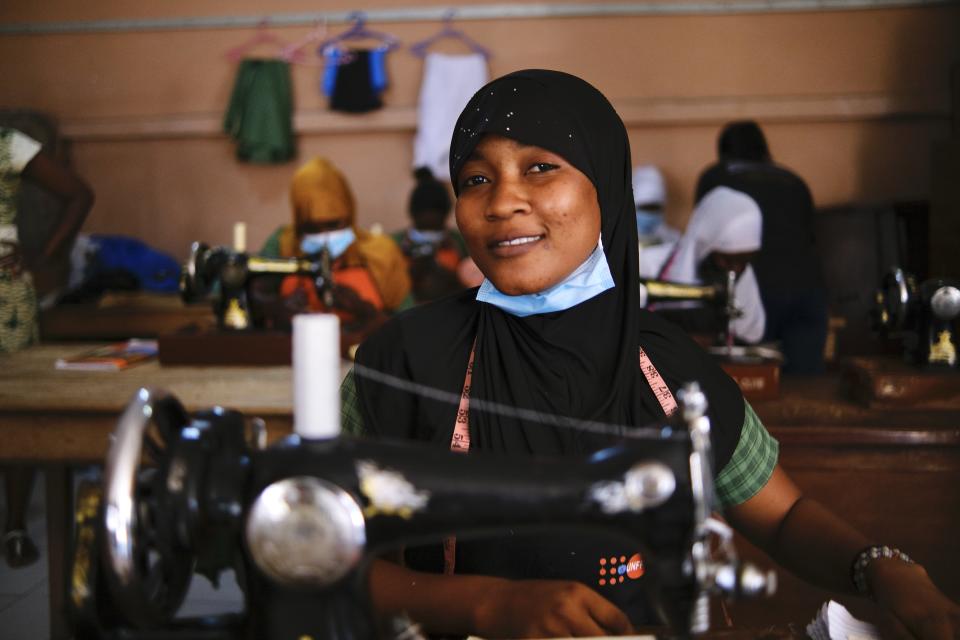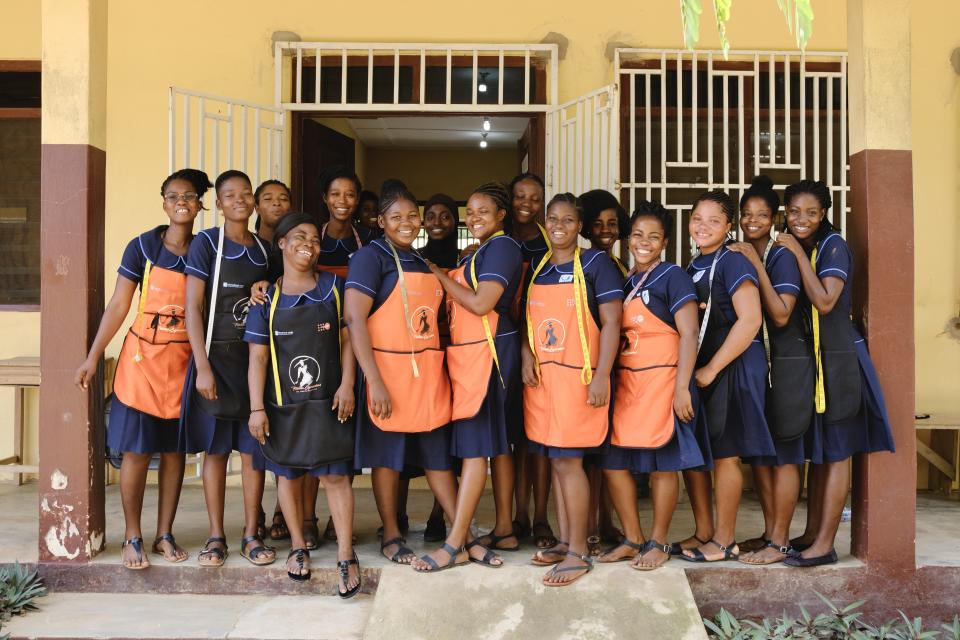Prada and UNFPA’s New Fashion Training Program Pushes for Women’s Economic Inclusion in Ghana, Kenya

Prada Group is supporting women’s economic inclusion in Ghana and Kenya.
In an effort to use fashion for purpose over just profit, the luxury company has linked with the United Nations sexual and reproductive health agency UNFPA to upskill a cohort of women and girls in fashion skills that will ultimately lead them to fashion jobs.
More from WWD
Officially unveiled Wednesday in order to first see the fruits of the first-of-its-kind fashion training program that launched last May for 30 women in Ghana and 15 women in Kenya, the “Fashion Expressions: The Stories She Wears” program has already proven to have empowered its participants, according to UNFPA.
“The idea is to have not only technical expertise for the module but also to make sure that then somehow [the women and girls] are connected, that there are channels for the sustainability of the program locally,” Mariarosa Cutillo, the UNFPA’s chief of strategic partnerships, told WWD. “We talk about the techniques but there’s also the part about managing the business then and so managing finances and therefore becoming also economically self-reliant.”
Over the course of six months, the women and girls — who range in age from 15 to 30 and who come from vulnerable backgrounds, whether they faced abuse, early pregnancies or family deaths that yielded economic hardship — will be trained in fashion techniques and business.

These include skills ranging from fashion design and illustration to patternmaking, sewing and, thanks to local partners with traditional skills, things like batik dyeing. When it comes to sustainability, the cohort will also be trained in the use of recycling and alternative materials to make the garments they want to make. On the business side, they’ll be provided the opportunity to acquire skills in financial literacy, including bookkeeping, budgeting and business management.
“We’re actually working with local experts, so [UNFPA’s] country office, and we have a consultant from Ghana who is an expert of local fashion that is building all the links with the right providers locally. These are local experts of local fashion. These are local experts, for example, of batik; these are local experts of all the traditional techniques, so this is also a way to give visibility to these local techniques that are so powerful in Africa in general and, in this case, particularly in Ghana and in Kenya,” Cutillo said. “If you see some of the designs, they’re so powerful. And this also gives a motivation to the girls because it’s something that’s their reality there. It’s completely thought through locally and implemented locally.”
Beyond the fashion itself, and in keeping with UNFPA’s mission, the training program is also designed to help give the women and girls greater agency in terms of sexual and reproductive health and protection. As part of the program there will be “comprehensive education sessions” on topics like menstrual health management, prevention of teenage pregnancies, prevention of and response to gender-based violence and practices like child marriage.
“The overall idea is really to promote the social and economic justice for these women in particular because the idea is that then they enter the world of work in their countries implementing what they’re learning through this module,” Cutillo said.
The UNFPA and Prada will continue their ongoing work of collaborating with local partners, including International Needs in Ghana and Kenya’s Kitui County Textile Centre, as well as established local fashion brands to facilitate links for the “Fashion Expressions” trainees that will ensure “long-term employment opportunities.”
While Prada’s role has been as more of a supporting observer letting the program take shape locally than being actively hands-on with training or sharing of techniques, Lorenzo Bertelli, the company’s marketing director and head of corporate social responsibility, said the effort is in line with Prada’s beliefs.
“This training program reflects Prada Group’s belief in fashion as a force for good,” said Bertelli. “We are honored to partner with UNFPA on this unique project to leverage the social and economic power of our industry to create more inclusive and equal societies.”
The pilot of this program for the first cohort will wrap at the end of the year, and UNFPA is already looking to places like Latin America to roll out similar ones.
“We want this to be a sustainable program and one of the things that will be important is the channel that we’re also able to make with these girls and women to have access to the world of work…the pilot doesn’t end with the pilot,” Cutillo said. “On the more awareness building side of it, we’d like these girls to really become champions in their own communities for women’s empowerment….This is a really practical way to give substance to this concept of the United Nations’ ‘leave no one behind.’”


